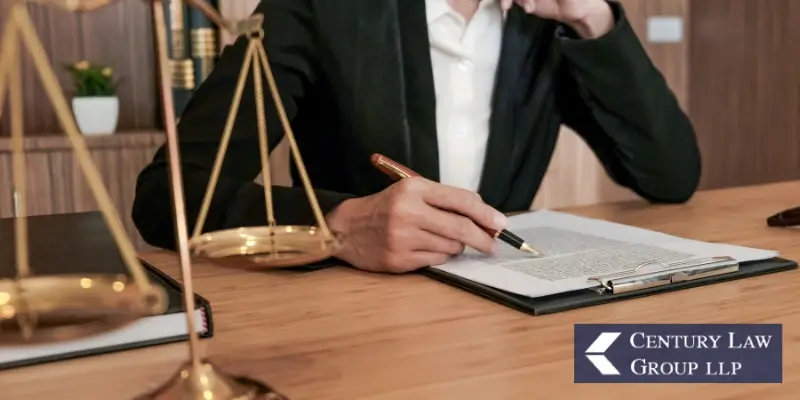Los Angeles Inverse Condemnation Lawyer
There have been many occasions in which a Los Angeles inverse condemnation attorney could have rendered their services successfully in the defense of a land owner against a government entity. One of the most important uses of imminent domain protection in southern California, which can often result in a Los Angeles inverse condemnation attorney’s services being required, is due to the channeling of waters that result in erosion damage.
As experienced and dedicated advocates for property owners, Century Law Group, LLP understands the complex challenges of inverse condemnation in Los Angeles and is committed to protecting your rights when government actions cause damage to your land.

Strict Liability
Attempting to enforce total liability can be too strict, as there needs to be proven causation of the damage due to a public entity’s actions. In the cases of neighbors erecting barriers that result in flood waters causing damage to other private land owners’ property, blaming public entities as a general rule is itself an unjust process. Often the enforcement of strict liability requires a set of conditions before it can be proven. In some cases, for instance, the reasonableness of the action can mitigate a property owner’s ability to go after the public entity with the aide of a Los Angeles inverse condemnation attorney. As in nearly all cases involving the law, there is room for debate as to whether an action is justifiable.
Blanket Immunity
Blanket immunity raises serious questions about property owners’ rights when facing government actions. As a skillful Los Angeles inverse condemnation attorney would tell you, until the 1980s any time a public entity in California performed an action that resulted in any kind of damage to private property, the public entity was liable. However, there have been cases where immunity has been proposed, with the result being the need of a California inverse condemnation attorney to navigate the challenges of proving that blanket immunity gives government entities too much authority to take unilateral action that can harm property owners.
Water Damage to the Property of Others
Flood damage cases often involve complex public use determinations that require experienced legal representation. Belair v. Riverside County Flood Control Dist., 47 Cal.3d 440 was among the earliest cases that began to moderate the extremes of strict liability versus applying blanket immunity standards under the old “common enemy” clause. Reasonableness is now the typical way in which a public entity’s actions are judged in court cases. The entire problem stemmed from a failed levee that resulted in the flooding and subsequent damage to private land.
The Locklin Factors
In Locklin v. City of Lafayette, 7 Cal.4th 327, a set of rules called the Locklin Factors developed to ascertain the reasonableness of a public entity’s actions. Firstly, is the overall purpose of the public going to be served by an improvement project that the entity is considering? Secondarily, will the ultimate benefits of the project outweigh a plaintiff’s losses due to the project being undertaken? Thirdly, the public entity must analyze whether there are feasible ways to solve the same problem that will impose lower risks of damage. Fourthly, how great is the damage to the plaintiff with regard to their capacity to bear the risk? Fifthly, to what extent is the damage merely part of the risks of owning land? Finally, a court must ask the Los Angeles inverse condemnation attorney to what extent the damage is particular to the plaintiff in particular, as opposed to being distributed.
Using an Attorney’s Services
Century Law Group is a coalition of skilled attorneys who represent those affected by imminent domain. In cases where inverse condemnation may be necessary, Century Law is there to help the plaintiff receive fair compensation for the damage that they have received. Contact us today.






